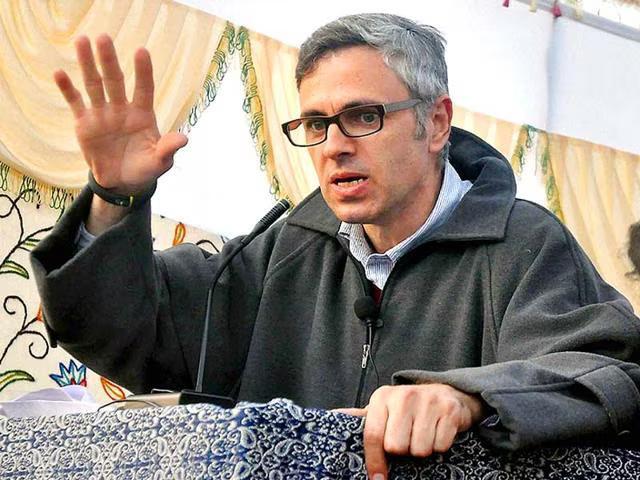
US doesn’t care about any other country: J&K CM Omar after Trump-Pak army chief lunch
The recent lunch meeting between US President Donald Trump and Pakistan army chief Asim Munir has sent shockwaves across the globe, particularly in India. The meeting has been viewed as a significant development, given the long-standing tensions between India and Pakistan over issues like Kashmir and terrorism. In the aftermath of this meeting, Jammu and Kashmir (J&K) Chief Minister Omar Abdullah has come out with a scathing critique of the US’s priorities, stating that the country does not care about any other nation’s interests.
Speaking to the media, Omar Abdullah expressed his disappointment and frustration over the US President’s decision to invite Pakistan’s army chief for lunch. “We can’t dictate to the US President whom he should invite for dinner. We used to think the US President was our close friend, and he’d respect that, but the US does what benefits them, they don’t care about any other country,” he said.
Abdullah’s remarks are a reflection of the growing disillusionment among Indians towards the Trump administration’s policies, particularly its handling of the Kashmir issue. The situation in Kashmir has been tense since the Indian government’s decision to revoke Article 370, which granted special status to the state. Pakistan has been strongly critical of this move, and tensions between the two countries have been escalating.
The invitation to Pakistan’s army chief for lunch has been seen as a significant development, given the US’s past criticism of Pakistan’s role in supporting terrorism. In recent years, the US has provided significant military aid to Pakistan, despite concerns about the country’s lack of progress in combating terrorism. The meeting between Trump and Munir has raised questions about the US’s priorities and whether it is willing to put pressure on Pakistan to address its concerns about terrorism.
Abdullah’s criticism of the US is not unfounded. The country has a history of pursuing its own interests, often at the expense of its allies. The US’s decision to withdraw from the Intermediate-Range Nuclear Forces Treaty (INF) is a recent example of this. The treaty was a landmark arms control agreement between the US and the Soviet Union, aimed at reducing the risk of nuclear war. However, the US withdrew from the treaty citing Russia’s non-compliance, a move that has been widely criticized by the international community.
The meeting between Trump and Munir has also raised questions about the US’s commitment to addressing global issues like terrorism and climate change. The US has been criticized for its lack of leadership on these issues, and its decision to withdraw from international agreements like the Paris Climate Accord. The meeting with Pakistan’s army chief has added to these concerns, with many questioning whether the US is willing to work with other countries to address these pressing issues.
In conclusion, Omar Abdullah’s criticism of the US’s priorities is a reflection of the growing disillusionment among Indians towards the Trump administration’s policies. The meeting between Trump and Munir has raised questions about the US’s commitment to addressing global issues like terrorism and climate change, and its willingness to work with other countries to address these pressing concerns. As the situation in Kashmir continues to deteriorate, it is essential for the international community to come together to address these issues and promote peace and stability in the region.






